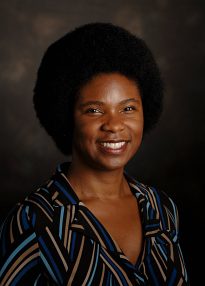Trio wins university Instructional Effectiveness Award
May 7, 2008
A trio from the Georgia State University College of Law is slated to receive the 2008 Instructional Effectiveness Award.
Professor Andi Curcio, associate professor Tanya Monique Washington and faculty research fellow Gregory Todd Jones will receive the award at the May 10 commencement ceremony. 
The award recognizes the trio's work in assessing the impact of practice writing and generalized feedback on student performance. In 2006, Curcio introduced a number of practice writing assignments in her Civil Procedures class, and with each exercise gave a model answer which contained comments on effective persuasive writing and analytical techniques. For comparison, Washington taught her class without the practice writing exercises.
"We wanted to see if giving practice writing exercises with feedback made a difference in student learning outcomes," says Curcio. "My target group was students who had been struggling with writing and legal analysis."
At the end of the semester, Curcio and Washington gave two identical final exam essay questions. The student essay answers from both classes were blind graded by both professors and sent to Jones for comparison. While there was an across-the-board benefit, the researchers discovered that students with the highest LSAT scores and undergraduate grade-point averages seemed to benefit the most.
The differences, Curcio hypothesizes, may have to do with differences in students' "metacognitive" levels as they enter law school. In other words, some students may learn more intuitively than others. Those students may have been better able to use the information in the model answers to learn what they were doing wrong and how to improve, Curcio said. The research was published in the Journal of Legal Education and the Florida State University Law Review. 
Curcio still uses some practice writing and feedback with 1L students in her Civil Procedures class, though the assignments are fewer, and involve more class time and more student self-reflection. Using what she learned through the study, Curcio said she is trying to help the students who do not intuitively understand the comments on the model answers and improve overall performance.
"To me, what a good teacher does is try things and keep what works," she said.